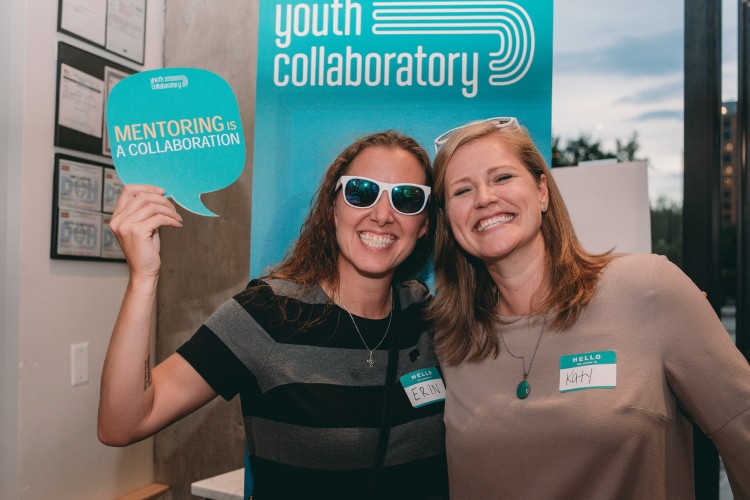Wide Open Spaces: Bridging the Resource Gap in Rural Mentoring

Introduction
Rural communities have their own unique set of strengths and challenges, especially when working with young people. Close-knit neighborhoods, strong family support systems, and a strong community ethic combine with scarcity of resources, lack of opportunities, and vast geographical service areas to form social systems that require a tailored approach to service delivery. This is especially true when volunteerism is critical – as with mentoring. Youth Collaboratory has prioritized working in rural communities. To that end, we have spoken with members and partners from rural areas to compile resources that help address the needs of rural mentoring programs. Based on that work, Youth Collaboratory offers this toolkit that features concrete best practices and techniques to help your rural mentoring program succeed. In May 2016, OJJDP’s National Mentoring Resource Center (NMRC), in partnership with MENTOR: The National Mentoring Partnership, held a webinar as part of its Collaborative Mentoring Webinar Series called Mentoring in Rural Communities: Traveling the Distance to Facilitate Your Program. That webinar identified the major challenges faced by rural mentoring programs, and presented insights from the field on how to overcome them. These include:
- Recruiting volunteers (and youth) from a small population;
- Finding resources for match activities;
- Maintaining confidentiality in a place where everyone knows each other;
- Managing vast distances when planning matches or group activities.
On November 1, 2017, Youth Collaboratory held a webinar to present tools to address these. Wide Open Spaces: Bridging the Resource Gap in Rural Mentoring broke the solutions for the four challenges into three categories:
- Drawing on the Strengths of Rural Communities
- Messaging and Marketing
- Partnerships and Collaboration
Within these categories we provided tools - some designed by Youth Collaboratory and others provided by panelists or sourced from other web sites or agencies – that staff from rural mentoring programs can use to mitigate the challenges they face. This toolkit consists of four modules, three based on the categories above and the fourth that contains a list of additional resources.

Purpose of the Toolkit
There is one universal truth for all youth, anywhere—and that is that any young person can benefit from a mentoring relationship. Whether your community is urban, ex-urban, suburban, or rural, the youth in your schools and neighborhoods could use a strong, positive role model. Likewise, each type of community comes with its own strengths and challenges related to mentoring; the key for program staff is to identify opportunities and anticipate barriers to meet the unique needs of your community while still adhering to best practices.
According to the 2016 National Mentoring Program Survey, only 10% of mentoring programs in the US are located in rural areas. But there are several benefits that mentoring can bring to small communities. Especially in places where children and families are geographically isolated, living far away from population centers on farms, ranches, mountainous areas, or on reservations, being matched with a mentor can reduce that isolation. For young people who live in remote areas, miles away from a town and often with no transportation to get out of the house, a mentor can provide the opportunity to explore their community, have new experiences, and discover the world outside of their own immediate environment.
In addition, in rural communities, as in other locations, there is often a big socioeconomic divide that manifests itself in where people live and the circles in which they travel. Mentors can bridge that divide by sharing their mentoring experiences with friends and family, helping to increase understanding of the issues that affect the community as a whole. In addition, many mentoring programs have specific objectives, such as increasing the number of students who graduate from high school, or building refusal skills for avoidance of risky behaviors. These programs can directly impact issues that are prevalent in rural communities and improve outcomes for youth.
The survey also found that rural mentoring programs outpace their urban counterparts in several ways. They’re more likely to require year-long matches than urban programs, and have higher expectations around the number of hours per month or week that matches spend together. Matches also tend to last longer in rural programs, 23 months, compared to only 17 in urban programs. Another interesting fact is that rural programs are more likely to focus on general youth development, life skills, healthy behaviors, substance abuse, and the relationship itself than urban programs. Not surprisingly, the survey also found that program staff reported the same challenges in rural programs that have been clear for some time.
These fall into a few general categories: resources, the sheer size of service areas, distrust of outsiders, and a small population to draw from for volunteers, donors and program participants. The purpose of this toolkit is to address these specific challenges and build on the work that excellent rural mentoring programs are doing in the field. We talked to mentoring program staff across the country, and one thing that was apparent is that for some of the challenges programs face, there’s no “cure.” For example, vast areas will remain vast for the most part; but by planning and thinking strategically, staff can alleviate the burden that those distances can bring. Then there are other challenges that can be mitigated more easily. The resources presented here are a first step toward finding solutions to those challenges.
Acknowledgements
Youth Collaboratory would like to thank the following people for contributing to the webinar on which this toolkit is based, as well as to the resources created to address the needs of rural communities.
- Tina McGuinness, Executive Director of Gunnison Valley Mentors in Gunnison, CO.
- Kathy Schwartzhoff, Mentoring Coordinator for Helping Services for Youth & Families, in Decorah, Iowa.
- Chad Butt, Executive Director of Mobius, Vermont’s Mentoring Partnership, in Burlington, VT
- Laura Laabs, Grants Director at Greater Wyoming Big Brothers Big Sisters in Laramie, WY
Resources for this toolkit were created by Youth Collaboratory or found on the following sites:
- MENTOR
- National Mentoring Resource Center
- UCLA CENTER FOR HEALTH POLICY RESEARCH
- Center for Collaborative Planning
- Center for Community Health and Development at the University of Kansas, Community Toolbox
- COMPASS
- Top Nonprofits
- Energize, Inc.
- NonProfit PRO
- CharityNet USA
- Administration of Children and Families
- Triple Pundit
- Charity Village
- TSNE MissionWorks
- Education Northwest
- Chronicle of Evidence-Based Mentoring



